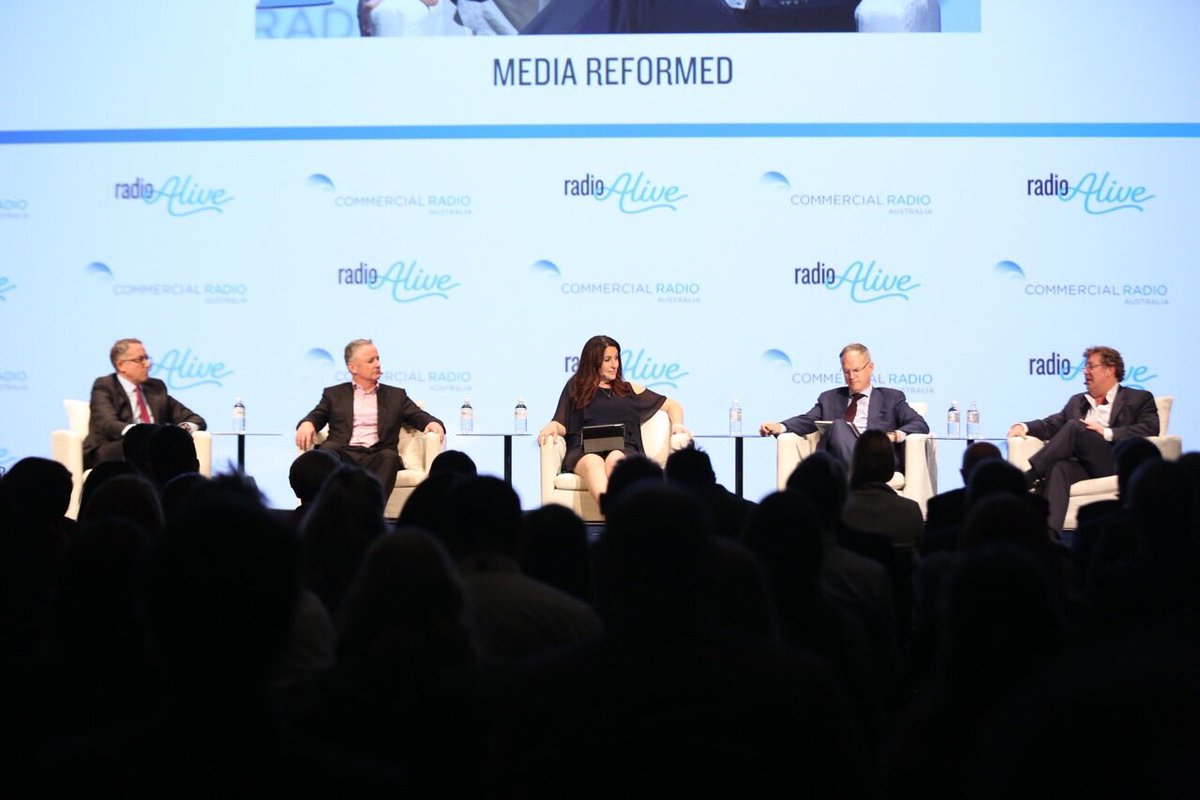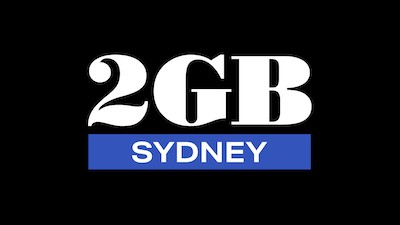Radio Alive 2017: Media reform addresses critical, but not everything

The removal of broadcasting licence fees, the abolishment of the two-out-of-three ownership rule, and a push for more local jobs and local content – there is no denying that one of the hottest topics in the industry at the moment is what the media reforms will potentially mean for the industry.
Should the legislation be passed by the House of Representative on Monday, the legistlation that has been governing the media industry for the past 25 years will receive a must-needed update – but will it be enough, and what does that mean for broadcasters and audiences alike?
Those where the questions being addressed by the Media Reformed panel at Radio Alive 2017, with Nine Entertainment Co chief executive officer Hugh Marks, Fox Sports chief executive officer Patrick Delany, News Corp Australasia executive chairman Michael Miller and Southern Cross Austereo CEO and managing director Grant Blackley all taking to the stage.
While much was discussed, here are the three key takeaways.
Too little, too late?
The panel were in agreeance that while some may consider the reforms to be well overdue, the legislation addresses some critical issues. The age of the internet, mobile devices and more content platforms than ever before are failing to be addressed in the seemingly archaic laws currently in play.
“[The legislation] had no time and place in this modern environment. It’s the first meaningful reform since I’ve been in this business,” Fox Sports chief executive officer Patrick Delany said.
“Regulation can shape business decisions.”
The panel also agreed that the world has moved beyond those laws, with less of a focus on exclusivity and a focus on expansion instead.
Partnering, scaling and the need to target niche audiences
There was a lot of talk about CBS and the all-but-done deal to buy Network 10 – which Southern Cross Austereo CEO and managing director Grant Blackley believes will stabilise the free-to-air market – which ultimately led to discussion around partnerships among media companies.
“We’d partner with anyone,” News Corp Australasia executive chairman Michael Miller said.
The general consensus was that in order to compete – and ultimately scale – media companies are going to have to partner.
But as the topic of scale came up, so too did the need to target niche audiences. While we’re not quite sure how women are considered a “niche” market (but good on Patrick Delany and Hugh Marks for championing female presenters across the board), the Nine Entertainment Co chief executive officer highlighted the need for outlets to move beyond just media, and into events as well.
"We have no right to audience anymore. You have to go to them and surprise them" – Nine Ent CEO Hugh Marks #RadioAlive2017
— radiotoday.com.au (@radiotodayanz) October 13, 2017
Data excites, monetisation worries broadcasters
One of the most heated topics of conversation amongst the panel was the changes technology has brought to media companies. In the battle against Google and Facebook delivering content for free, as well as the diluting of the audience thanks to the likes of Netflix and YouTube, the more traditional forms of media see technology as a double-edged sword.
“All we want is a level playing field,” Delany said, in reference to Google’s recent decision to end it’s “first click free” policy that was potentially denying outlets with a paywall income.
There were also calls for the likes for the likes of Google to be regulated as a media company and not a technology company – yet the panel were huge advocates for the data that new technology was providing outlets about their audience and media consumption habits and a granular level.
“This is a global hurricane coming through local media,” Delany warned the audience, encouraging them to support local content now more than ever.
“Don’t underestimate the size of the challenge,” Marks added.


